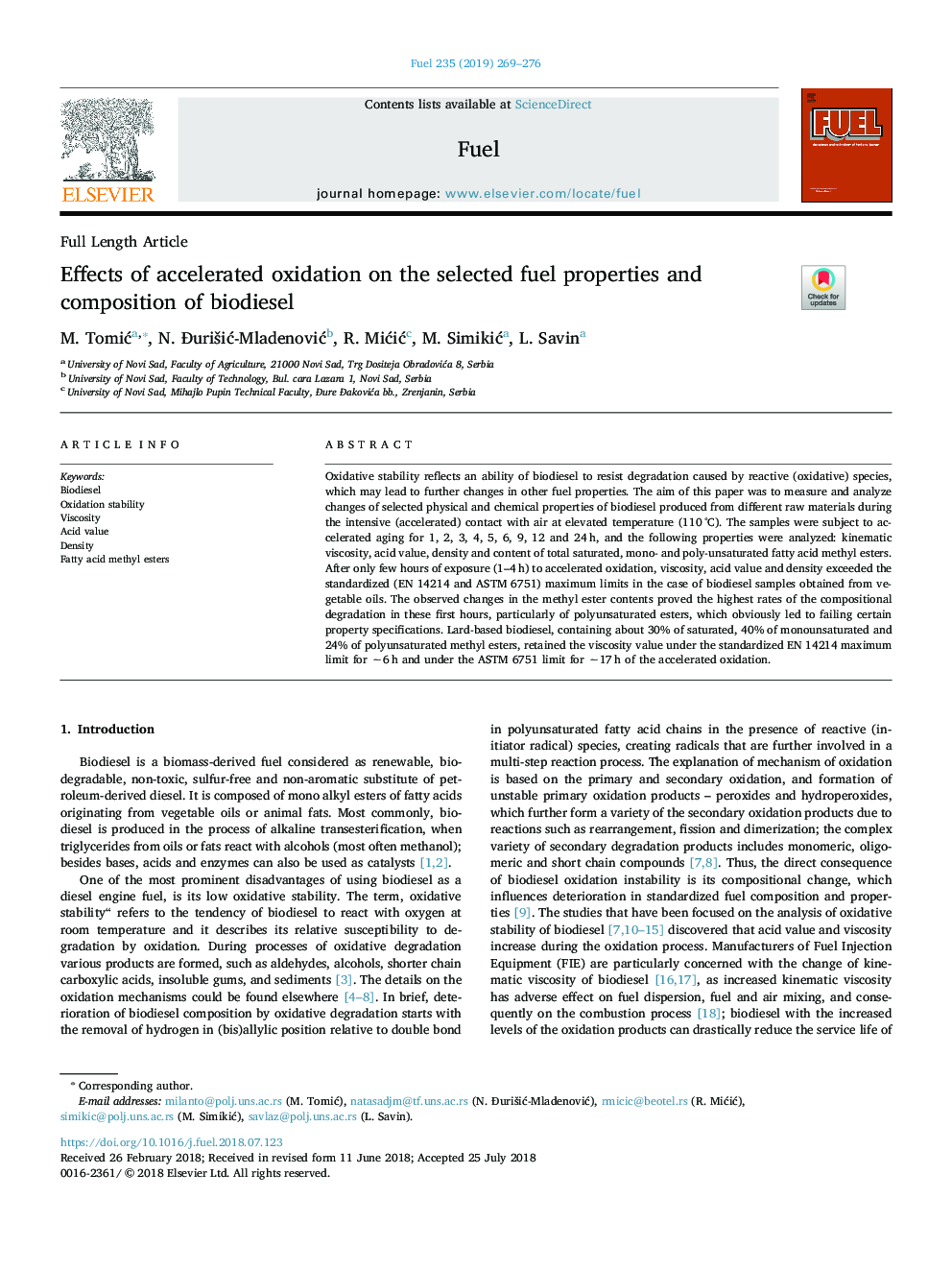| Article ID | Journal | Published Year | Pages | File Type |
|---|---|---|---|---|
| 6629910 | Fuel | 2019 | 8 Pages |
Abstract
Oxidative stability reflects an ability of biodiesel to resist degradation caused by reactive (oxidative) species, which may lead to further changes in other fuel properties. The aim of this paper was to measure and analyze changes of selected physical and chemical properties of biodiesel produced from different raw materials during the intensive (accelerated) contact with air at elevated temperature (110â¯Â°C). The samples were subject to accelerated aging for 1, 2, 3, 4, 5, 6, 9, 12 and 24â¯h, and the following properties were analyzed: kinematic viscosity, acid value, density and content of total saturated, mono- and poly-unsaturated fatty acid methyl esters. After only few hours of exposure (1-4â¯h) to accelerated oxidation, viscosity, acid value and density exceeded the standardized (EN 14214 and ASTM 6751) maximum limits in the case of biodiesel samples obtained from vegetable oils. The observed changes in the methyl ester contents proved the highest rates of the compositional degradation in these first hours, particularly of polyunsaturated esters, which obviously led to failing certain property specifications. Lard-based biodiesel, containing about 30% of saturated, 40% of monounsaturated and 24% of polyunsaturated methyl esters, retained the viscosity value under the standardized EN 14214 maximum limit for â¼6â¯h and under the ASTM 6751 limit for â¼17â¯h of the accelerated oxidation.
Related Topics
Physical Sciences and Engineering
Chemical Engineering
Chemical Engineering (General)
Authors
M. TomiÄ, N. ÄuriÅ¡iÄ-MladenoviÄ, R. MiÄiÄ, M. SimikiÄ, L. Savin,
